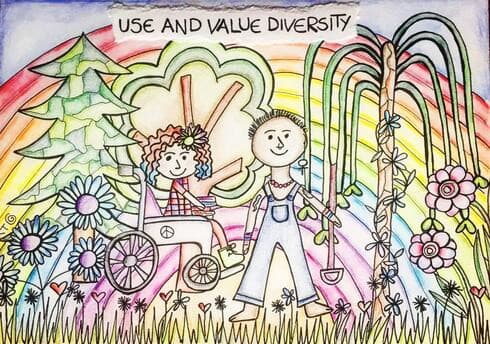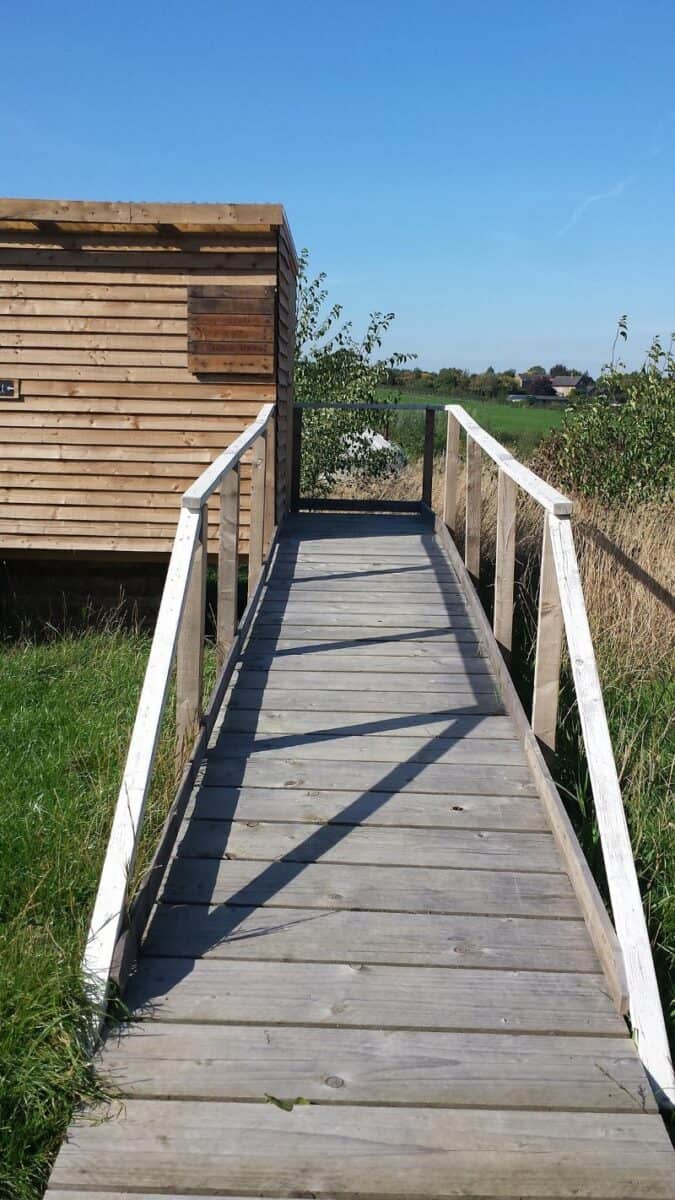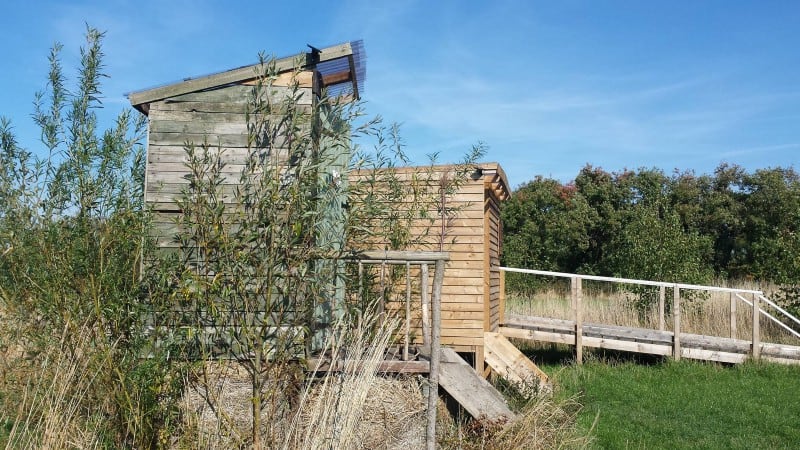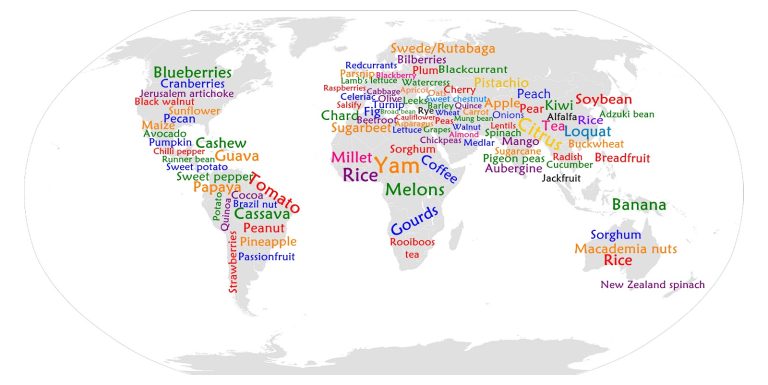Permaculture for people with disability- positives, challenges and suggestions for a more inclusive permaculture.
By Kt Shepherd

(Mainly UK-focused, though many aspects applicable to other countries too.)
Since becoming very unwell and disabled nearly two years ago, I have learnt very quickly about what it means to be a person with disabilities attempting to navigate everyday life — and within that life, being unable to access many of the things I had previously taken for granted. Given that permaculture knowledge, experience, events and demonstration sites were previously a big part of my life, I have become increasingly aware of how difficult it would be for me to now access many of these things; in some cases it would be impossible. If I can’t participate in these events that are so important in my life, I wondered how many other people are also struggling to engage and connect with permaculture because of chronic illness and/or disability.
As I started thinking about this in more depth, I set up a Facebook group with the intention of connecting with other people in the permaculture community with chronic illness and/or disability. (CI/D).
(Recently, after some discussion in the Facebook group, it was decided that it made sense to add “neurodiversity” to the name and themes of the group too. The topic of neurodiversity inclusion isn’t discussed in this article, as the decision to add neurodiversity to the subject content in the Facebook group was made once I had started writing this post up. Many of the issues mentioned here — though not all of them — will also be relevant to neurodivergent people)
If at this point you need more information about the definitions of chronic illness and disability then please see the links shared in “Designing Solutions”, further on in this article.
In addition to setting up the group, I went on to openly ask some questions about accessing permaculture for people with CI/D in several UK focused Facebook groups about permaculture and also via a post on the Permaculture Association (Britain) online noticeboard. People were invited to respond to the following questions, either in public in the group or by emailing me. In total, 47 people (mainly from the UK) responded in one of these ways. The aim of this information-gathering was to access reflections on experiences; it was a place to start a conversation rather than to undertake a structured research project.
Here are the summaries and direct (anonymous) quotes of the responses to each question.
(This article is quite lengthy, as I wanted to be able to include the voices of as many people as possible.)
1) Do you identify as having a chronic illness and/or disability?
A diverse range of chronic illnesses and/or disabilities were included in the response to this question. These included physical illnesses, mental illnesses, learning disabilities (including dyslexia) and physical disabilities. Several people were keen to include neurodiversity as a disability too, as they pointed out that the education and benefits systems in the UK treat it as such. Many people also said that their illness and/or disability was a ‘hidden’ one, meaning that other people couldn’t immediately tell if the person with the chronic illness and/or disability had extra needs. A common theme evolved around many people feeling disabled by their environment, which frequently does not allow differently abled people to participate in life as they need to or would like to. Anyone has the potential to have additional needs and people with chronic illness and/or disability should be accepted to self define this, and not judged by others in doing so.
Some people who responded didn’t identify as having a CI/D, though they had witnessed the experiences of people with CI/D accessing permaculture events and demonstration sites.
2) Do you have examples of where accessing permaculture knowledge, demonstration sites and events have been adapted to the needs of someone with a chronic illness and/or disability? This might be your own needs, or someone else you have observed being supported well.
Several people mentioned great examples of how their needs relating to CI/D had been met at a variety of permaculture events and sites. These included:
- Being asked about specific needs before the event;
- A culture of being able to have rest/quiet time whenever needed;
- Frequent breaks;
- Short learning sessions;
- Diverse styles of teaching/facilitation;
- The option of completing a permaculture design course in small sections, over a period of months or years.
There were also a couple of examples of places that had easily accessible compost toilets.
Some statements made were:
- “Kindness from the course facilitator meant a lot.”
- “I have been able to choose a course based on my style of learning.”
- “Fully accessible composting toilets both in the workshop space and in the accommodation.”
- “Being disabled gives you opportunity for slow and thorough observation — from individual needs to the collective “hive”.
- “I have been treated well at some events I have attended.”
- “Pre-arranged parking near to our place (permaculture project) can be done.”
- “Help from the teacher — time out space and the option of time out whenever needed.”
3) Have you, or anybody else you have witnessed, been unable to access permaculture knowledge and/or demonstration sites and/or events because of your chronic illness and/or disability?
Some statements that reflect general themes were:
- “I have witnessed many events where access for some people is very restricted, if not impossible.”
- “Intentional communities only want fit and healthy people, which excludes most people with CI/D.”
- “Financial cost of having my needs met is too high to be able to attend events.”
- “I’m unable to attend a whole event, but partial options [are] not always available.”
- “I can only attend an event if I have a Carer with me — this makes things really expensive.”
- “I feel many, if not all, permaculture events ignore groups of people who are differently abled.”
- “I became chronically unwell while working at a permaculture site (from a tick bite) but have received virtually no support or help from that project since becoming unwell. I know other people who have also become unwell from being on permaculture sites.”
- “Not able to socialise in busy spaces, often misunderstood as disinterest at events and courses.”
- “It’s difficult to book or commit to anything in advance, in case I can’t go — there’s not always an option to attend at the last minute.”
- “I would be able to go to half/one day of an event but this isn’t always possible, and the timetable of activities doesn’t always design well for this.”
- “Many people with chronic illness and disability are financially very poor and this is currently deteriorating with ‘hostile environment’ politics. Many cannot afford to attend permaculture events.”
The attitudes of other people
Many people have health conditions where their symptoms are variable. Some found that the lack of understanding about this meant that they felt uncomfortable and judged if they couldn’t join in with an activity when the previous day they had been able to. Some examples given were:
- “Some days I am relatively well, other days I am pretty much bedbound.”
- “My fluctuating symptoms and need for rest were not understood by the course facilitator or others attending the course.”
- “I often feel vulnerable or a nuisance for asking for help.”
- “The attitude of others can be a major obstacle.”
- “There is little to no support or real understanding for people with chronic health conditions in the permaculture community.”
- “We live in a selfish individualist and ableist society and I have found that to also be true with much of the permaculture community and environmentalist movements in general.”
- “I wanted to focus on disability and permaculture for my Diploma (In Applied Permaculture Design) but was unable to find a tutor to support me doing this, so gave up.”
- “I feel like people like myself are going to be forever excluded because our society, including the permaculture community, only seem to value people who can undertake physical labour and put in lots of hours.”
- “I tried to write articles (about tick bite disease risks) for different permaculture resources but was turned down. The permaculture community plays down the risks.”
Physical space
- “At many events, toilets are really difficult for me to access on a good day and would have been impossible on a bad day.”
- “No truly accessible toilets.”
- “Most permaculture events I have been to have been difficult for me to access due to uneven ground.”
- “Many demonstration sites are on uneven ground and some distance from car parking, meaning they are very difficult to access for people with CIAD who can walk, and impossible for people with CIAD who use a wheelchair to mobilise or need to sit down to rest frequently.”
- “I couldn’t safely access the loos or the showers.”
- “The actual event was a long way from the nearest accessible parking.”
- “Seating is often an issue — not being able to lean against a wall or sit on the ground, for example.”
- “Often permaculture events are held on sites with very uneven surfaces and distance from parking. Can be difficult for even the most mild forms of mobility issues.”
- “Disability loos are often just for people who need to use wheelchairs — many of us with mobility/access issues don’t need to use a wheelchair.”
- “Sleeping arrangements at residential events — camping, bunk beds, dorms — are often obstacles.”
- “Stairs without railings.”
- “Location of toilet (upstairs).”
- “There would need to be a wheelchair access path to all areas and I would need a private room for me to be able to attend.”
Event activities
- “The activities at the event required participants to have a good level of strength and prolonged energy. I couldn’t join in with them.”
- “I couldn’t attend one weekend of the course as it involved camping, which I can’t do.”
- “The pace and general busy atmosphere at many permaculture events can mean that I don’t always give my chronic illness the attention it needs. This can result in adverse effects to my health.”
- “Long teaching sessions mean I can’t focus well enough.”
- “Similar styles of learning/lots of information for each session [are] difficult/overwhelming.”
4) What changes could be made in order for you, or other people with chronic illness and/or disability, to be able to further access permaculture knowledge and/or demonstration sites and/or events?
General themes
One very common theme emerging from the reflections people shared with me is that permaculture should be about designing systems that showcase inclusivity.
- “New design in making the next generation of permaculture demonstration sites and events more accessible.”
- “Work on improving current sites and events.”
- “Explore funding options for improving access.”
- “The Facebook Group Permaculture, Chronic Illness, Neurodiversity and Disability” as a ‘hub’ for designing.”
- “Flagship designs for accessibility of events, knowledge and courses.”
- “Developing an ‘inclusion worker’ post at the Permaculture Association.”
- “Build in greater awareness about CI/D into permaculture design courses (PDCs).”
- “I’m creating designs to increase accessibility within permaculture projects. My local permaculture community has been really supportive with feedback about my designs.”
- “More realistic assessments and education of the health risks (tick-borne illness and other diseases associated with soil and being outdoors) at permaculture sites, events and in educational materials.”
- “More understanding in general about chronic illness and disability in the permaculture community.”
- “Practical help with lifts to events, home and garden adaptions and other ways of implementing permaculture design.”
- “If something doesn’t exist, create your own design/project!”
- “Individualised support according to needs.”
- “Being able to arrive early and leave late at events — to manage energy levels.”
- “Free events places for carers.”
- “We are building a permaculture demonstration site and are very much focused on accessible design as I am disabled.”
- “A culture of a safe, relaxed space.”
- “Low cost and sliding scale prices.”
- “We all have different diverse needs, any designs to improve inclusion of people with CIAD needs to take into account our different needs.”
- “Providing somewhere quiet for people with chronic illnesses to rest.”
- “Can people with chronic illnesses/disability volunteer for smaller amounts of time?”
- “Can they attend only a small part of a larger event., i.e. say a 2-day or 5-day series of workshops or conference?”
- “Can people pay less … and only attend part of the programme?”
- “Noise levels — noise can be exhausting to deal with … so these might need to be managed … and have a quiet room so people can take breaks.”
- “The starting point of any event, course etc, should be inclusion. If you aren’t including the needs of people with chronic illness and disabilities (and the same with race and gender, etc), then you are actively excluding them — it’s a choice.”
- “More options/ways of doing PDC over as much time as needed — modular — this is happening with at least one permaculture teacher.”
- “Having a ‘buddy’ system” (events and geographically locally).”
- “Would like to see events being run by disabled and poorly people.”
- “It’s really important that the intersection between differing abilities and indigenous people is also respected, as much permaculture knowledge is based on indigenous people’s cultures and this needs to be central in our design work.”
Attitudes
- “Build in greater awareness about CI/D into permaculture design courses (PDCs).”
- “I make sure that the course facilitator knows about my different needs — and have never had any problem.”
- “A greater understanding that mobility assistance isn’t just about creating ramps etc.”
- “Having ‘hidden disability’ badges (similar to airport systems).”
- “Events and courses can be organised to allow time and space for everyone, as well as a culture vocalised that its fine for anyone to take a comfort break at any time — whether that’s to lie down, be quiet, get some water, take medications or otherwise.”
Physical space
- “Having regular places and opportunities to sit down.”
- “Quiet spaces to rest — opportunities to lie down as well as sitting.”
- “Quiet spaces at meal times.”
- “Toilet hoist equipment for folk unable to stand at all would mean opportunities for longer involvement at an event or courses.”
- “RADAR key — for accessible loo.”
- “Prior information about access issues at venues would give reassurance and greater opportunity to participate.”
- “Greater understanding of the need for cleanliness (re compromised immune systems) and for folk who need to keep aids/medical equipment clean.”
- “Accessible sites are so much easier to maintain.”
- “There are examples of LAND centres that are accessible, but not many people visit. Could they be advertised more?”
Activities
- “Flexible time scheduling.”
- “Diverse learning opportunities and teaching styles.”
- “Short sessions with repetition.”
- “Frequent short breaks.”
- “Handouts in digital and paper format — including a new vocabulary and acronyms list.”
- “Using common sense language.”
- “Activities with varying choices of levels of intensity, and prior knowledge about these.”
Designing solutions
Although every person with CI/D is an individual with unique experiences and needs, there are some common symptoms, issues and requirements for many folk. The following easily accessible resources are some favourites of mine, and can help you to understand more about these.
The Mighty — online community of support and awareness raising about disability, disease and mental health.
Stickman Communications — communicating about disability with style and humour
Chronic Illness Inclusion Project
Permaculture, Chronic Illness, Neurodiversity and Disability Facebook group


Suggestions to improve access to permaculture knowledge, events and demonstration sites in general in the permaculture community/movement
- Consideration of a staff member with an ‘inclusivity’ role in the Permaculture Association.
- A commitment to designing for improved access for people with CI/D in permaculture in general.
- Creation of a directory of (and promotion of) events/courses/demonstration sites that aim to meet the needs of many people with CI/D.
- Encouragement for further articles, learning materials and designs relating to accessing permaculture for people with CI/D.
- Information about access and support issues for people with CI/D built into the PDC as standard.
- Creation of a culture of accessibility in new and existing intentional communities.
- A PDC and other permaculture events and demonstration sites specifically designed for and focused on the needs of people with CI/D (as flagship/gold standard examples).
- Permaculture, Chronic Illness, Neurodiversity and Diversity Facebook group as a “hub” for discussion, ways forward and new designs.
- Acknowledgement and action (in terms of information provision and awareness-raising) in relation to risks of health problems that may result from attending permaculture events and demonstration sites. Some examples of these are: tick-borne illnesses (Lyme diseaseand others); leptospirosis (Weil’s disease) from urine of infected animals, most commonly from rats; injuries and their associated sepsis risk; sunburn/heatstroke.
Top tips for permaculture events/courses facilitators and permaculture demonstration sites
- Include as much information as possible (in the course/event marketing and in the event joining information) about physical access issues, the availability of quiet resting spaces and the ability to support additional learning needs.
- Ask about specific needs as part of the event joining information. Be honest and realistic about whether these needs can be met.
- Consider having lower cost or free places for Carers of people with CI/D.
- Invite a person with CI/D to speak or lead a session/workshop at events and on courses about accessing permaculture for people with CI/D.
- Include people with CI/D as part of the design team when creating permaculture information sharing, event, courses or new designs for demonstration sites.
- Consider whether learning materials/event/course/volunteering options could be broken down into smaller sections. Is it be possible to charge for each section separately? (This would avoid a person with a CI/D needing to pay a full price for only attending a fraction of the event.)
- Design Permaculture Design Courses (PDC) as modular courses (either online or face to face) so that people can attend and pay for one module at a time.
- Choose venues and activities for your events that are accessible for people who have reduced mobility and who need for spaces to rest.
- Ensure provision of quiet spaces to rest at events/courses/demonstration sites, including space to lie down.
- Design new demonstration sites (and redesign existing sites) so that they include accessibility for people with CI/D as a core function.
- Create a “buddy” system in your local permaculture network and/or events — with the aim of providing extra support for people with CI/D, thereby improving inclusivity.
- Create a culture of care and empowerment at your event/course/demonstration site. Ensure awareness of permission and encouragement for people to take time out for self-care whenever they need to.
- Provide “hidden illness/disability” badges/lanyards at events, together with information about what these mean and how others could help.
- Use diverse teaching/learning materials — including take-away/digital handouts detailing the main points covered and explaining any terminology and acronyms.
- Design short, diverse teaching/information-sharing/workshop sessions with regular breaks.
- Provide information and engage in awareness-raising relating to health risks that may result from attending permaculture events and demonstration sites. Some examples of these are tick-borne illnesses (Lyme disease and others); leptospirosis (Weil’s disease) from urine of infected animals, most commonly from rats; injuries and their associated sepsis risk; sunburn/heatstroke.
This article and its suggestions have been designed to act as a starting point for further discussions and design work around access to permaculture for people with chronic illness and/or disability. Over the next few weeks, I will also be recording a spoken-voice version of the article content for my planned YouTube channel. I openly welcome feedback and /or suggestions for further blog posts/articles. Feel free to contact me by email or via my social media platforms.
This article is also on my Blog at Kt Shepherd Permaculture, where you can also access PDFs of the “Top tips” and “Suggestions” for ease of printing if needed



